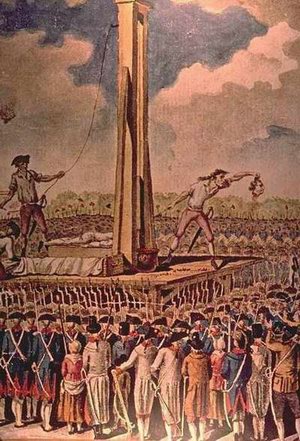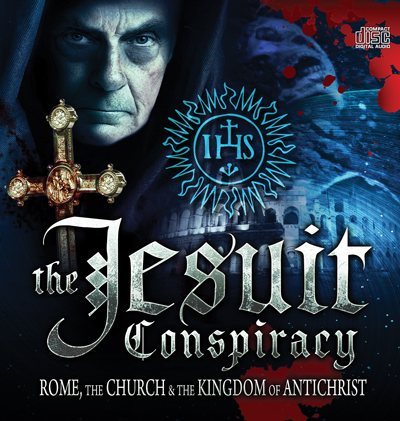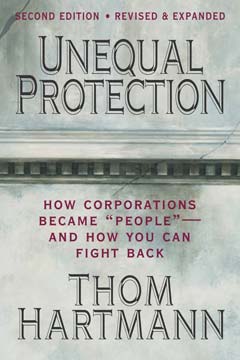Southern Baptist Convention on the Ropes Regarding the Sabbath Day Tuesday, Jun 18 2013
Sabbath 6:32 am
The 7th Day Sabbath in the Early Church Sunday, May 19 2013
Sabbath 9:05 pm
Apostolic Constitutions (Book II), Section 4,
XXXVI. Have before your eyes the fear of God, and always remember the ten commandments of God—to love the one and only Lord God with all your strength; to give no heed to idols, or any other beings, as being lifeless gods, or irrational beings or dæmons. Consider the manifold workmanship of God, which received its beginning through Christ. You shall observe the Sabbath, on account of Him who ceased from His work of creation, but ceased not from His work of providence: it is a rest for meditation of the law, not for idleness of the hands.
Apostolic Constitutions (Book VII), Section 2,
“XXIII. But let not your fasts be with the hypocrites; for they fast on the second and fifth days of the week. But do you either fast the entire five days, or on the fourth day of the week, and on the day of the Preparation, because on the fourth day the condemnation went out against the Lord, Judas then promising to betray Him for money; and you must fast on the day of the Preparation, because on that day the Lord suffered the death of the cross under Pontius Pilate. But keep the Sabbath, and the Lord’s day festival; because the former is the memorial of the creation, and the latter of the resurrection. But there is one only Sabbath to be observed by you in the whole year, which is that of our Lord’s burial, on which men ought to keep a fast, but not a festival. For inasmuch as the Creator was then under the earth, the sorrow for Him is more forcible than the joy for the creation; for the Creator is more honourable by nature and dignity than His own creatures.
…
XXXVI. O Lord Almighty You have created the world by Christ, and hast appointed the Sabbath in memory thereof, because that on that day You have made us rest from our works, for the meditation upon Your laws. You have also appointed festivals for the rejoicing of our souls, that we might come into the remembrance of that wisdom which was created by You; how He submitted to be made of a woman on our account; He appeared in life, and demonstrated Himself in His baptism; how He that appeared is both God and man; He suffered for us by Your permission, and died, and rose again by Your power: on which account we solemnly assemble to celebrate the feast of the resurrection on the Lord’s day, and rejoice on account of Him who has conquered death, and has brought life and immortality to light. For by Him You have brought home the Gentiles to Yourself for a peculiar people, the true Israel beloved of God, and seeing God. For You O Lord, brought our fathers out of the land of Egypt, and delivered them out of the iron furnace, from clay and brick-making, and redeemed them out of the hands of Pharaoh, and of those under him, and led them through the sea as through dry land, and bore their manners in the wilderness, and bestowed on them all sorts of good things. You gave them the law or decalogue, which was pronounced by Your voice and written with Your hand. You enjoined the observation of the Sabbath, not affording them an occasion of idleness, but an opportunity of piety, for their knowledge of Your power, and the prohibition of evils; having limited them as within an holy circuit for the sake of doctrine, for the rejoicing upon the seventh period. On this account was there appointed one week, and seven weeks, and the seventh month, and the seventh year, and the revolution of these, the jubilee, which is the fiftieth year for remission, that men might have no occasion to pretend ignorance. On this account He permitted men every Sabbath to rest, that so no one might be willing to send one word out of his mouth in anger on the day of the Sabbath. For the Sabbath is the ceasing of the creation, the completion of the world, the inquiry after laws, and the grateful praise to God for the blessings He has bestowed upon men. All which the Lord’s day excels, and shows the Mediator Himself, the Provider, the Lawgiver, the Cause of the resurrection, the First-born of the whole creation, God the Word, and man, who was born of Mary alone, without a man, who lived holily, who was crucified under Pontius Pilate, and died, and rose again from the dead. So that the Lord’s day commands us to offer unto You, O Lord, thanksgiving for all. For this is the grace afforded by You, which on account of its greatness has obscured all other blessings.”
Tertullian, Against Marcion, Book IV, C12,
“Concerning the Sabbath also I have this to premise, that this question could not have arisen, if Christ did not publicly proclaim the Lord of the Sabbath. Nor could there be any discussion about His annulling the Sabbath, if He had a right to annul it. Moreover, He would have the right, if He belonged to the rival god; nor would it cause surprise to any one that He did what it was right for Him to do. Men’s astonishment therefore arose from their opinion that it was improper for Him to proclaim the Creator to be God and yet to impugn His Sabbath. Now, that we may decide these several points first, lest we should be renewing them at every turn to meet each argument of our adversary which rests on some novel institution of Christ, let this stand as a settled point, that discussion concerning the novel character of each institution ensued on this account, because as nothing was as yet advanced by Christ touching any new deity, so discussion thereon was inadmissible; nor could it be retorted, that from the very novelty of each several institution another deity was clearly enough demonstrated by Christ, inasmuch as it was plain that novelty was not in itself a characteristic to be wondered at in Christ, because it had been foretold by the Creator. And it would have been, of course, but right that a new god should first be expounded, and his discipline be introduced afterwards; because it would be the god that would impart authority to the discipline, and not the discipline to the god; except that (to be sure) it has happened that Marcion acquired his very perverse opinions not from a master, but his master from his opinion! All other points respecting the Sabbath I thus rule. If Christ interfered with the Sabbath, He simply acted after the Creator’s example; inasmuch as in the siege of the city of Jericho the carrying around the walls of the ark of the covenant for eight days running, and therefore on a Sabbath day, actually annulled the Sabbath, by the Creator’s command— according to the opinion of those who think this of Christ in this passage of St. Luke, in their ignorance that neither Christ nor the Creator violated the Sabbath, as we shall by and by show. And yet the Sabbath was actually then broken by Joshua, so that the present charge might be alleged also against Christ. But even if, as being not the Christ of the Jews, He displayed a hatred against the Jews’ most solemn day, He was only professedly following the Creator, as being His Christ, in this very hatred of the Sabbath; for He exclaims by the mouth of Isaiah: Your new moons and your Sabbaths my soul hates. Isaiah 1:14 Now, in whatever sense these words were spoken, we know that an abrupt defence must, in a subject of this sort, be used in answer to an abrupt challenge. I shall now transfer the discussion to the very matter in which the teaching of Christ seemed to annul the Sabbath. The disciples had been hungry; on that the Sabbath day they had plucked some ears and rubbed them in their hands; by thus preparing their food, they had violated the holy day. Christ excuses them, and became their accomplice in breaking the Sabbath. The Pharisees bring the charge against Him. Marcion sophistically interprets the stages of the controversy (if I may call in the aid of the truth of my Lord to ridicule his arts), both in the scriptural record and in Christ’s purpose. For from the Creator’s Scripture, and from the purpose of Christ, there is derived a colourable precedent — as from the example of David, when he went into the temple on the Sabbath, and provided food by boldly breaking up the show-bread. Even he remembered that this privilege (I mean the dispensation from fasting) was allowed to the Sabbath from the very beginning, when the Sabbath day itself was instituted. For although the Creator had forbidden that the manna should be gathered for two days, He yet permitted it on the one occasion only of the day before the Sabbath, in order that the yesterday’s provision of food might free from fasting the feast of the following Sabbath day. Good reason, therefore, had the Lord for pursuing the same principle in the annulling of the Sabbath (since that is the word which men will use); good reason, too, for expressing the Creator’s will, when He bestowed the privilege of not fasting on the Sabbath day. In short, He would have then and there put an end to the Sabbath, nay, to the Creator Himself, if He had commanded His disciples to fast on the Sabbath day, contrary to the intention of the Scripture and of the Creator’s will. But because He did not directly defend His disciples, but excuses them; because He interposes human want, as if deprecating censure; because He maintains the honour of the Sabbath as a day which is to be free from gloom rather than from work; because he puts David and his companions on a level with His own disciples in their fault and their extenuation; because He is pleased to endorse the Creator’s indulgence: because He is Himself good according to His example— is He therefore alien from the Creator? Then the Pharisees watch whether He would heal on the Sabbath day, Luke 6:7 that they might accuse Him— surely as a violator of the Sabbath, not as the propounder of a new god; for perhaps I might be content with insisting on all occasions on this one point, that another Christ is nowhere proclaimed. The Pharisees, however, were in utter error concerning the law of the Sabbath, not observing that its terms were conditional, when it enjoined rest from labour, making certain distinctions of labour. For when it says of the Sabbath day, In it you shall not do any work of yours, Exodus 20:16 by the word yours it restricts the prohibition to human work— which every one performs in his own employment or business— and not to divine work. Now the work of healing or preserving is not proper to man, but to God. So again, in the law it says, You shall not do any manner of work in it, Exodus 12:16 except what is to be done for any soul, that is to say, in the matter of delivering the soul; because what is God’s work may be done by human agency for the salvation of the soul. By God, however, would that be done which the man Christ was to do, for He was likewise God. Wishing, therefore, to initiate them into this meaning of the law by the restoration of the withered hand, He requires, Is it lawful on the Sabbath-days to do good, or not? To save life, or to destroy it? Luke 6:9 In order that He might, while allowing that amount of work which He was about to perform for a soul, remind them what works the law of the Sabbath forbade— even human works; and what it enjoined— even divine works, which might be done for the benefit of any soul, He was called Lord of the Sabbath, Luke 6:5 because He maintained the Sabbath as His own institution. Now, even if He had annulled the Sabbath, He would have had the right to do so,as being its Lord, (and) still more as He who instituted it. But He did not utterly destroy it, although its Lord, in order that it might henceforth be plain that the Sabbath was not broken by the Creator, even at the time when the ark was carried around Jericho. For that was really God’s work, which He commanded Himself, and which He had ordered for the sake of the lives of His servants when exposed to the perils of war. Now, although He has in a certain place expressed an aversion of Sabbaths, by calling them your Sabbaths, Isaiah 1:13-14 reckoning them as men’s Sabbaths, not His own, because they were celebrated without the fear of God by a people full of iniquities, and loving God with the lip, not the heart, Isaiah 29:13 He has yet put His own Sabbaths (those, that is, which were kept according to His prescription) in a different position; for by the same prophet, in a later passage, He declared them to be true, and delightful, and inviolable. Thus Christ did not at all rescind the Sabbath: He kept the law thereof, and both in the former case did a work which was beneficial to the life of His disciples, for He indulged them with the relief of food when they were hungry, and in the present instance cured the withered hand; in each case intimating by facts, I came not to destroy, the law, but to fulfil it, Matthew 5:17 although Marcion has gagged His mouth by this word. For even in the case before us He fulfilled the law, while interpreting its condition; moreover, He exhibits in a clear light the different kinds of work, while doing what the law excepts from the sacredness of the Sabbath and while imparting to the Sabbath day itself, which from the beginning had been consecrated by the benediction of the Father, an additional sanctity by His own beneficent action. For He furnished to this day divine safeguards, — a course which His adversary would have pursued for some other days, to avoid honouring the Creator’s Sabbath, and restoring to the Sabbath the works which were proper for it. Since, in like manner, the prophet Elisha on this day restored to life the dead son of the Shunammite woman, you see, O Pharisee, and you too, O Marcion, how that it was proper employment for the Creator’s Sabbaths of old to do good, to save life, not to destroy it; how that Christ introduced nothing new, which was not after the example, the gentleness, the mercy, and the prediction also of the Creator. For in this very example He fulfils the prophetic announcement of a specific healing: The weak hands are strengthened, as were also the feeble knees Isaiah 35:3 in the sick of the palsy.”
Socrates Scholasticus, Church History (Book V), Chapter 22. The Author’s Views respecting the Celebration of Easter, Baptism, Fasting, Marriage, the Eucharist, and Other Ecclesiastical Rites:
“For although almost all churches throughout the world celebrate the sacred mysteries on the sabbath of every week, yet the Christians of Alexandria and atRome, on account of some ancient tradition, have ceased to do this.”
Sozomen, Ecclesiastical History (Book VII), Chapter 19. A List Worthy of Study, Given by the Historian, of Customs among Different Nations and Churches.
“The people of Constantinople, and almost everywhere, assemble together on the Sabbath, as well as on the first day of the week, which custom is never observed at Rome or at Alexandria. There are several cities and villages in Egypt where, contrary to the usage established elsewhere, the people meet together on Sabbath evenings, and, although they have dined previously, partake of the mysteries. The same prayers and psalms are not recited nor the same lections read on the same occasions in all churches.”
The Mosaic Law and the Sabbath; A Response to Chris White; A refutation of Chris White’s “Should Christians Keep the Sabbath in the New Covenant?” Monday, Apr 22 2013
Sabbath 3:42 pm
Carlstadt on the 7th Day Sabbath, the Regulative Principle and the Lord’s Supper Tuesday, Oct 2 2012
 Barnas Sears, The Life of Luther (Philadelphia: American Sunday-School Union, 1850), 361-363
Barnas Sears, The Life of Luther (Philadelphia: American Sunday-School Union, 1850), 361-363
“He [Carlstadt] had so far restored the sacrament of the Lord’s supper as to distribute the wine as well as the bread to the laity. Luther, “in order not to offend weak consciences,” insisted on distributing the bread only, and prevailed. He [Carlstadt] rejected the practice of elevating and adoring the host. Luther allowed it, and introduced it again. Carlstadt maintained, that “we should not, in things pertaining to God, regard what the multitude say or think, but look simply to the word of God. Others,” he adds, “say that, on account of the weak, we should not hasten to keep the commands of God; but wait till they become wise and strong.” In regard to the ceremonies introduced into the church, he judged as the Swiss reformers did, that all were to be rejected which had not a warrant in the Bible. [Thus Carlstadt affirmed the Regulative Principle] “It is sufficiently against the Scriptures, if you can find no ground for it in them.” Luther asserted, on the contrary, “Whatever is not against the Scriptures is for the Scriptures, and the Scriptures for it. Though Christ hath not commanded adoring of the host, so neither hath he forbidden it.” “Not so,” said Carlstadt, “we are bound to the Bible, and no one may decide after the thoughts of his own heart.”
Carlstadt differed essentially from Luther in regard to the use to be made of the Old Testament. With him, the law of Moses was still binding. Luther, on the contrary, had a strong aversion to what he calls a. legal and Judaizing religion. Carlstadt held to the divine authority of the Sabbath from the Old Testament; Luther believed Christians were free to observe any day as a Sabbath, provided they be uniform in observing it. But Carlstadt was also a mystic, following an inward light. Hence his sympathy with the Zwickau Prophets. He was a singular compound of Zwinglian, Lutheran and Anabaptist ingredients.
The most important difference between him and Luther, and that which most imbittered the latter against him, related to the Lord’s supper. He opposed not only transubstantiation, but consubstantiation, the real presence, and the elevation and adoration of the host. Luther rejected the first, asserted the second and third, and allowed the other two. In regard to the real presence, he says: “In the sacrament is the real body of Christ and the real blood of Christ, so that even the unworthy and ungodly partake of it; and ‘partake of it corporally, ‘ too, and not spiritually as Carlstadt will have it.” [And the Puritans] After Carlstadt had been compelled to keep silence, from 1522 to 1524, and to submit to the superior power and authority of Luther, he could contain himself no longer. He, therefore, left Wittenberg, and established a press at Jena, through which he could, in a series of publications, give vent to his convictions, so long pent up. He also preached in several places in that neighbourhood, but chiefly at Orlamunde, a little above Jena, on the Saale. A furious controversy ensued. Both parties exceeded the bounds of Christian propriety and moderation.
Carlstadt was now in the vicinity of the Anabaptist tumults, excited by Muncer. He sympathized with them in some things, but disapproved of their disorders. Luther made the most of this. The work which he wrote against him, he entitled “The Book against the Celestial Prophets.” This was uncandid; for the controversy related chiefly to the sacrament of the supper. In the south of Germany, and in Switzerland, Carlstadt found more adherents than Luther. Banished as an Anabaptist, he was received as a Zwinglian.
No doubt this circumstance did much toward producing that intolerant spirit which Luther ever afterward manifested toward Zwingle and his associates. It is not for us to decide the doctrinal question. It is enough to say that those men were as much entitled to the respect and charity of Luther, as he was to their s. We pass over this whole controversy, and the numerous colloquies and debates growing out of it, as inappropriate to the character of this work.”
Our Puritan forebears followed Carlstadt on Sabbath keeping simpliciter, the Lord’s Supper and the Regulative Principle but did not follow him regarding the day of the Sabbath. Huh?
Catholic Nick’s “7 Reasons to reject Sabbatarianism (Seventh Day Sabbath Keeping)” Refuted Sunday, Sep 30 2012
Nick’s blog against Sabbath keeping can be found here. Nick’s comments will be in bold and italic font.
Keeping the Sabbath was a commandment given only to Israel, not to mankind in general…the first time men are instructed to “Keep the Sabbath” (i.e. rest on the 7th day of the week) is in Exodus 16:23-30…There is no mention of men keeping or being commanded to keep the Sabbath anytime from Eden to Egypt…of all the types of sins the recorded throughout Genesis, no mention of keeping or breaking the Sabbath is mentioned”
>>>1. The Sabbath is a creation ordinance which pre-dated the Commonwealth of Israel (Gen 2:3; Which implies it is natural law and will never be abrogated in the dispensation of men Mat 22:30 i.e. monogamous heterosexual marriage [Gen 2:24, Mat 19:4-5], the headship of the man over the woman [1 Cor 11:3], man’s dominion over all creation [Gen 1:26,28] and labor [Gen 2:15]) and is the assumed premise of Moses when he says in the giving of the law and the Sabbath command at Mt. Sinai “For in six days the LORD made the heavens and the earth, the sea and all that is in them, and rested on the seventh day; therefore the LORD blessed the Sabbath day and made it holy (Exo 20:11). How can Nick side step this phrase in Gen 2:3 “And God blessed the seventh day, and sanctified it” ?
2. The first recorded prohibition to commit murder is Exo. 20. The first recorded prohibition to commit idolatry is Exo. 20. The first recorded prohibition to commit adultery is Exo. 20. The first recorded prohibition to commit homosexuality is Lev. 18. Yet Abel’s murder is condemned as if men knew it was wrong to murder. Jacob abhorred idolatry in Gen 35:1-4. Joseph refused to commit adultery as if he knew it was sin. Sodom and Gomorrah were judged for homosexuality. Therefore, it is irrelevant that the first RECORDED command to obey one of the ten commandments is in Exo 16.
3. Exo. 21:28 says, “If an ox gore a man or a woman, that they die: then the ox shall be surely stoned, and his flesh shall not be eaten; but the owner of the ox [shall be] quit.”
Yet we find no examples of men stoning an ox to death in our canon. Therefore, it is irrelevant that we find no examples of men being commanded to keep a Sabbath from Egypt to Eden or being punished for not keeping it. God obviously gave man his law before he made it formal under Moses. God sanctified the Sabbath in Gen. 2 which is the exact basis that Moses provided for keeping it in Exo. 20! Just imagine a Jew in the 4th Century B.C., whose OX just gored his neighbor to death, making a defense of himself saying “Oh, but there is no mention of an OX goring a man and being stoned to death in the Bible from Moses’ days until now”!
“Nehemiah 9: 13 “You came down on Mount Sinai; you spoke to them from heaven. You gave them regulations and laws that are just and right, and decrees and commands that are good. 14 You made known to them your holy Sabbath and gave them commands, decrees and laws through your servant Moses.
Clearly, the Sabbath as a legal commandment was revealed only at the time of Moses, to the Israelites, as a sign between them and God.”
>>>Yet Nick must have verses 13 and 14 to only mean the Sabbath when we see that these verses included many laws that Moses gave. If Nick want to use this verse he needs to say that all the Mosaic instruction on Sinai was new. Yet I have already proven that this was not the case. What then is Nehemiah up to? Just read the context from verse 9. These people had been in bondage in the pagan land of Egypt that did not observe God’s law, had been there for centuries and they needed a refresher and a new word from God.
“(2) The Ten Commandments are not the greatest commandments. Those who insist on making the Ten Commandments an eternal standard of morality become guilty of cutting and pasting their doctrine from the Bible. Jesus teaches us that there are two great commandments: loving God with all our heart and loving our neighbor as yourself (Mt 22:34-40). Yet these two greatest commandments are taken not from the Ten Commandments, but rather two separate passages from the Torah (Deut 6:5; Lev 19:8). It would be quite ironic to say the Ten Commandments remain eternal while the greatest commandments can be either ignored or appended at will to the Ten Commandments. In reality, Christian tradition has shown the two greatest commandments are the only supreme commandments, and summarize the entire Mosaic Law and Prophets. The Ten Commandments are thus only a very handy guideline summary for the two greatest commandments.”
>>>This is just stupid. The man even admits that the two great commands are just summaries of the Ten Commandments. It is proved these statements are summaries of the separate tables in that they are joined together in Mat 22:37-39 and the second statement is specifically said to be a summary of the second table in Romans 13:
“Rom 13:8 Owe nothing to anyone except to love one another; for he who loves his neighbor has fulfilled the law.
Rom 13:9 For this, “YOU SHALL NOT COMMIT ADULTERY, YOU SHALL NOT MURDER, YOU SHALL NOT STEAL, YOU SHALL NOT COVET,” and if there is any other commandment, it is summed up in this saying, “YOU SHALL LOVE YOUR NEIGHBOR AS YOURSELF.”
“(3) Sabbatarianism is a form of Judaizing. One of the biggest heresies in the Apostolic age was that of Jewish Christians pressuring Gentile Christians to get circumcised and thus live by the Mosaic Law (Acts 15:5).”
>>>That was not the issue of Acts 15:5. Paul makes very clear in 1 Cor 7:19 Circumcision is nothing, and uncircumcision is nothing, but the keeping of the commandments of God.
The issue was not the substance of the act but the purpose of it. That is, these people in Acts 15 believed that Circumcision was a condition of justification.
“This was especially ‘visible’ in the avoiding of certain foods and keeping of certain holidays. Yet the Council of Jerusalem in Acts 15 demonstrates that keeping the Mosaic Law is not required for Gentile Christians, only Faith in Jesus.”
>>> Only Faith in Jesus? Is Nick becoming a Protestant? I admit this is a difficult issue. However, I believe John Gill answered this in full. The issue is that blood was forbidden ceremonially and even in the context of natural law before the law of Moses until the death of Christ whose death fulfilled all ceremonial types. It was forbidden again in Acts 15 to appease the conscience of the Jews who did not understand how Christ abolished all aspects of the ceremonial law. After this age the laws against blood consumption are now abrogated. John Gill comments on Acts 15:20,
“and from blood: which is not to be understood of the blood of men and shedding of that, which is of a moral nature; but of the blood of beasts, and of eating of that. There were several laws about eating of blood, and which are different, and ought to be carefully distinguished. The first is in Ge 9:4 “but flesh with the life thereof, which is the blood there of, shall you not eat”; which forbids the eating of flesh with the blood; but not the eating of flesh separately, nor the eating of blood separately, provided they were properly prepared and dressed, but the eating of them together without any preparation. As this was the first hint to man that we know of, that he might eat flesh, it was proper that the manner in which he should eat it, should be suggested to him; that he should not take the creature alive and eat it, or tear off any of its members and eat it whilst alive, or eat raw flesh; but should prepare it by roasting or boiling, or some way, in which it might become proper food: and it is the constant sense of the Jewish synagogue {c}, that this law is to be understood of the member of a living creature, torn from it, and eaten whilst alive; six commands, the Jews say, were given to the first man Adam, the first five forbid idolatry, blasphemy, shedding of blood, uncleanness, and theft, or robbery, and the sixth required judgment against offenders; to these were added, for the sons of Noah, a seventh, which forbid the eating of the member of a living creature, as it is said, Ge 9:4 {d}. So that this law has nothing to do with eating of blood, simply considered, and no more forbids eating of it separately, than it does eating of flesh separately: in like manner is the law in De 12:23 to be understood, and is so interpreted by the Jewish writers {e}: another law is in Le 19:26 “ye shall not eat anything with the blood”; which according to our version, seems to be the same law with the former, but is not; for it is not said here, as before, b, “in”, or “with”, but le, “upon”, “over”, or “by” the blood. This is differently understood: some think the sense is, that no one should eat of the sacrifices, before the sprinkling of the blood upon the altar {f}; or until it stands or is congealed in the basons {g}; others, that it is a caution to judges, that they do not eat until they have finished judgment; for whoever judges or passes sentence after he has eat and drank, is as if he was guilty of blood {h}: another observes {i}, that next to this clause, it is said, “neither shall ye use enchantment”; meaning that they should not use enchantment by eating, in the way that murderers do, who eat bread over the slain, that the avengers of the slain may not take vengeance on them; this author smells something superstitious or diabolical in this matter; and indeed this is the case; the truth of the matter is, it refers to a practice among the Heathens, who fancied that blood was the food of the demons, to whom they sacrificed; and therefore when they sacrificed to them, they took the blood of the beast and put it into a vessel, and sat down by it, and round about it, and ate the flesh; imagining that whilst they ate the flesh, the demons eat the blood, and by this means friendship and familiarity were contracted between them; so that they hoped to receive some advantage from them, and be informed of things to come {k}. Hence, this law is placed with others against enchantments and observing times, to which may be added, Eze 33:25 “ye eat with the blood”, or “over it”, or “by” it; “and lift up your eyes to your idols”: which is to be understood in the same light, and with these compare 1Sa 14:32. But besides these, there was a third law, which is frequently repeated, Le 3:17 which absolutely forbids the eating of blood, as well as fat; the Jews except the blood of fishes, and locusts, and creeping things, and the blood of men, and the blood that is in eggs, and that which is squeezed out of flesh, or drops from it, which a man may eat and not be guilty of the breach of this law {l} the reason of this law was, because the blood, which is the life, was given in sacrifice for the life of men, to be an atonement for them; wherefore, to keep up a just reverence of the sacrifice, and to direct to the blood of the great sacrifice of the Messiah, blood was forbidden to be eaten, till that sacrifice was offered up; and then that blood itself was to be spiritually eaten by faith: and now if eating of blood in general was morally evil in itself, it would be a monstrous shocking thing in the Christian religion, that the blood of Christ is to be drank; though it be to be understood in a spiritual sense: the law against eating blood was very strictly enjoined the Jews, and severely punished; whoever ate of blood, but the quantity of an olive, if he ate it wilfully, was guilty of cutting off; if ignorantly, he was to bring a sin offering {m}: James knew that the breach of this law would give great offence to the Jews, and therefore for the peace of the church he moves that the Gentiles might be wrote to, to abstain from blood; and which was agreed to and done: and this was attended to with much strictness by the primitive Christians, who seemed to have observed this advice in the form of a law, and thought it criminal to eat blood; but in process of time it was neglected; and in Austin’s time abstinence from blood was derided, as a ridiculous notion; and it is at least now high time that this, and everything else of a ceremonial kind, was dropped by Christians; though where the peace of the brethren is in danger, this, and everything of an indifferent nature should be abstained from: Beza’s ancient copy adds, “and whatsoever they would not have done to themselves, do not unto others”; and so two of Stephens’s: the Ethiopic version is, “whatsoever they hate should be done to themselves, let them not do to their brethren”.
However, we have the command concerning things contaminated by idols which clarifies that keeping the Moral aspects of the Mosaic Law IS required.
From Exo 34:15, Lev 17:1-7, Lev 7:28-36, 1 Cor 10:19-21, 25-28, and Rev 2:14, 20 it is morally sinful for anyone to eat meat knowingly sacrificed to an idol in both the Old and the New Covenant. The distinction Paul gives concerns one’s liberty when eating with other Gentiles and the meat may or may not have been sacrificed to an idol (You do not know and Paul forbids you to ask). Paul wants to avoid offenses as much as possible but if it is made known to you that it was sacrificed to an idol you are morally obliged to abstain.
“In fact, there are two passages where Paul clearly refutes the idea that the Sabbath is still binding. The Epistle to the Galatians was focused upon refuting Judaizing, since many Gentile Christians had fallen prey to the heresy. In Galatians 4:10 Paul rebukes them by saying, “You observe days and months and seasons and years.” It is plain that Paul is not speaking of pagan holidays, so these “days” can only be referring to the weekly Sabbath days, along with the monthly, seasonal, and yearly Jewish holidays.”
Some Sabbatarians object saying the “days” here are the yearly feast days, but Paul has already covered this in the “seasons and years” category. Notice that Paul is talking from smaller time frames “days” to larger ones “years”.
>>>Gen 1: 14 And God said, Let there be lights in the firmament of the heaven to divide the day from the night; and let them be for signs, and for seasons, and for days, and years:
Gal 4:10 is clearly operating off of this passage. We have this exact thing appealed to in 1 Chron 23:31 in connection with the CEREMONIAL SABBATHS AND THE SACRIFICIAL SYSTEM:
“And to offer all burnt sacrifices unto the LORD in the sabbaths, in ***the new moons*****, and on the set feasts, by number, according to the order commanded unto them, continually before the LORD:”
In Lev. 23, the ceremonial Sabbaths are described differently than the weekly Sabbath. The ceremonial Sabbaths are observed for more than one day. An example of which is that the feast of unleavened bread was for seven days. Thus the plural use of the word. Nick’s next passage is Col. 2:16-17 which is also clearly operating off of the CEREMONIAL SABBATHS in 1 Chron 23:31.
“ Secondly, as noted in the prior text, the length of time Paul cites is that of year-month-week, and since year is covered in “religious festival,” that means “Sabbath day” must correspond to the week.”
>>>The word “week” does not appear in either the Gal. 4 nor the Col. 2 text.
“Just as powerful is Leviticus 23, which is speaking of the Jewish calendar feasts, and includes explicitly the Seventh Day Sabbath as one of the feasts (Lev 23:1-3), meaning it isn’t it’s own ‘moral command’ independent of feast days”
>>>How does he make this connection? The mention of the weekly Sabbath is necessary because these multiple-day feasts would overlap the weekly Sabbath. Instruction was necessary on how that was to be handled. Secondly, work was forbidden on the weekly Sabbath, but not absolutely with the other feasts. Thirdly, the weekly Sabbath is said to pertain to “all your dwellings”. There was clearly a distinction.
“If all of the Old Testament is a shadow of things to come, fulfilled in Christ, as 2:17 says, then it would be absurd for something as central as the Sabbath to have no fulfillment in Christ.”
>>>All of the OT is not a shadow of Christ. The ceremonial law was the shadow. The moral law is natural and perpetual. Thus Anthony Burgess’ Vindiciae Legis: or, A Vindication of the Moral Law and the Covenants, from the Errors of Papists, Arminians, Socinians, and more especially, Antinomians (1647) says in distinguishing the moral over the ceremonial laws,
“But herein the moral Law is preeminent: 1. In that it is a foundation of the other laws; and they are reduceable to it. 2. This was to abide always, not the other. 3. This was immediately written by God, and commanded to be kept in the Ark, which the other were not.” (pg. 151)
“(4) The Ten Commandments are the heart of Mosaic Law and abolished as a legal code; they now only serve as guidelines.”
>>>Blasphemy! Mat 5: 17 Think not that I am come to destroy the law, or the prophets: I am not come to destroy, but to fulfil.
“So when Jesus ended and fulfilled the Mosaic Law the Ten Commandments most certainly were abolished along with it!”
>>Blasphemy! Mat 5: 17 Think not that I am come to destroy the law, or the prophets: I am not come to destroy, but to fulfil.
“Anything else is a form of Judaizing and denial that Jesus came! And yet Sabbatarians like the Seventh Day Adventists follow the Mosaic law on many points, including Sabbath day regulations and dietary laws. After the Mosaic Law was abolished, Christians only kept the Ten Commandments format to use as guidelines for general morals (e.g. don’t kill, steal, lie), but not as a legal code with detailed regulations and legal penalties.”
>>> So why then did the early Christians in the vast majority perform worship and the sacraments on the Sabbath for centuries after the Apostles?
“For although almost all churches throughout the world celebrate the sacred mysteries on the sabbath of every week, yet the Christians of Alexandria and atRome, on account of some ancient tradition, have ceased to do this.”
“The people of Constantinople, and almost everywhere, assemble together on the Sabbath, as well as on the first day of the week, which custom is never observed at Rome or at Alexandria. There are several cities and villages in Egypt where, contrary to the usage established elsewhere, the people meet together on Sabbath evenings, and, although they have dined previously, partake of themysteries. The same prayers and psalms are not recited nor the same lections read on the same occasions in all churches.”
“ A crucial passage to be aware of in this regard is 2 Corinthians 3, which says the Ten Commandments are the “ministry of death” (2 Cor 3:7)!”
>>>Only as it functions in the Covenant of Works. Nick misses verse 3 which states, “Forasmuch as ye are manifestly declared to be the epistle of Christ ministered by us, written not with ink, but with the Spirit of the living God; not in tables of stone, but in fleshy tables of the heart.” This is in direct fulfillment of Jer 31:33 “But this is the covenant which I will make with the house of Israel after those days,” declares the LORD, “I will put My law within them and on their heart I will write it; and I will be their God, and they shall be My people.
The law, as it functions to the elect in the Covenant of Grace is a promise of the New Covenant, not something abrogated as a minister of death.
“Now Paul is not saying the Ten Commandments are evil, but rather that they being the heart of the Mosaic Law represent a dead-end path to salvation.”
>>>But wait Nick! I am not stating the law is a path to salvation. I am saying that it is the rule of sanctification. Having been saved/justified, man now has the ability to keep the law. Nick’s view is the exact mistake of the Galatians when Paul said, “Gal 5:4 You have been severed from Christ, you who are seeking to be justified by law; you have fallen from grace.” I am not seeking to be justified y the law. I am seeking to be sanctified by the law not justified by the law.
“(5) The New Testament never commands Sabbath Keeping for Christians. The only time Sabbath keeping is mentioned in the New Testament is in reference to either the Jews keeping the Sabbath or for the Apostles going to preach in the synagogue on the Sabbath (since that’s when the Jews assembled). Of all the teachings and commands given, never does Jesus nor the Apostles mention the need to keep the Sabbath. This is quite astonishing if, as Sabbatarians believe, Sabbath breaking was to become one of the most brazen and nearly universal attacks on God’s moral teaching. This is why the Seventh Day Adventists must go to embarrassing extremes to try and find any shred of proof from Scripture, settling on the idea that the “Mark of the Beast” must be Sunday worship (despite the fact no such connection can be made).”
>>>The New Testament never speaks to the issue of bestiality. Does that mean that Nick thinks this practice is now morally acceptable?
“(6) Sunday is not the Sabbath.”
>>>Agreed
“(7) The mention of Sabbath and Marriage in the Garden of Eden each have a fulfillment.”
>>>But Nick, normal physical marriage has not been abrogated has it?
A Recantation of the Sunday Sabbath and an Affirmation of the Original 7th Day Sabbath Thursday, Sep 27 2012
Sabbath 6:14 am
As my readers probably know, I am very interested in the Counter-Reformation and the Jesuit order. I have been reading a bit on the Council of Trent and came across the 17th session.[1] It seems the Reformation was making serious headway in the Roman Church until the speech by Archbishop Reggio[2] who complained that the Church’s change of the Sabbath from Saturday to Sunday was indicative of her authority over the scripture.
This was an occasion for me to re-read my written material on the change from Saturday to Sunday and I found a contradiction. The WCF uses Acts 20 to prove the change of worship claiming that the breaking of the bread was sacramental. Yet when discussing the time when the Sunday Sabbath begins, Thomas Shepard, English puritan, who wrote the most prolifically on this issue[3], denied that this was sacramental pointing to verse 11 and others where this was simply a meal. Moreover, John 20:19 says that the disciples were not coming together on Sunday to change the Sabbath day, but for fear of the Jews, “Then the same day at evening, being the first day of the week, when the doors were shut where the disciples were assembled ****for fear of the Jews****, came Jesus and stood in the midst, and saith unto them, Peace be unto you.”
It also appears that for the first few Centuries of Christian History, worship was conducted on the Seventh Day Sabbath, not Sunday!
“For although almost all churches throughout the world celebrate the sacred mysteries on the sabbath of every week, yet the Christians of Alexandria and atRome, on account of some ancient tradition, have ceased to do this.”
“The people of Constantinople, and almost everywhere, assemble together on the Sabbath, as well as on the first day of the week, which custom is never observed at Rome or at Alexandria. There are several cities and villages in Egypt where, contrary to the usage established elsewhere, the people meet together on Sabbath evenings, and, although they have dined previously, partake of the mysteries. The same prayers and psalms are not recited nor the same lections read on the same occasions in all churches.”
The Augsburg Confession says in Article XXVIII: Of Ecclesiastical Power.
“33] They [The Romanists-DS] refer to the Sabbath-day as having been changed into the Lord’s Day, contrary to the Decalog, as it seems. Neither is there any example whereof they make more than concerning the changing of the Sabbath-day. Great, say they, is the power of the Church, since it has dispensed with one of the Ten Commandments!…
57] Of this kind is the observance of the Lord’s Day, Easter, Pentecost, and like holy-days and 58] rites. For those who judge that by the authority of the Church the observance of the Lord’s Day instead of the Sabbath-day was ordained as a thing necessary, 59] do greatly err. Scripture has abrogated the Sabbath-day; for it teaches that, since the Gospel has been revealed, all the ceremonies of Moses can be omitted. And 60] yet, because it was necessary to appoint a certain day, that the people might know when they ought to come together, it appears that the Church designated the Lord’s Day for this purpose; and this day seems to have been chosen all the more for this additional reason, that men might have an example of Christian liberty, and might know that the keeping neither of the Sabbath nor of any other day is necessary.
61] There are monstrous disputations concerning the changing of the law, the ceremonies of the new law, the changing of the Sabbath-day, which all have sprung from the false belief that there must needs be in the Church a service like to the Levitical, and that Christ had given commission to the Apostles and bishops to devise new ceremonies as necessary to 62] salvation.”
Now I learned the answer to this from the Puritans themselves: The Sabbath is a creation ordinance (Gen 2:3; Which implies it is natural law and will never be abrogated in the dispensation of men Mat 22:30 i.e. monogamous heterosexual marriage [Gen 2:24, Mat 19:4-5], the headship of the man over the woman [1 Cor 11:3], man’s dominion over all creation [Gen 1:26,28] and labor [Gen 2:15]) and is the assumed premise of Moses when he says in the giving of the law and the Sabbath command at Mt. Sinai “For in six days the LORD made the heavens and the earth, the sea and all that is in them, and rested on the seventh day; therefore the LORD blessed the Sabbath day and made it holy (Exo 20:11). Therefore, the Sabbath is not Mosaic and not Levitical. Some object that Col 2: 16-17 [16 Therefore no one is to act as your judge in regard to food or drink or in respect to a festival or a new moon or a Sabbath day— 17 things which are a mere shadow of what is to come; but the substance belongs to Christ.] abrogates the 4th Commandment but let the reader note from Lev. 23 and 1Chron. 23:31 that there were two types of Sabbaths in the OT. One was weekly and began with creation. The others were seasonal, ceremonial and clearly connected to the sacrificial system. The wording of Col. 2 and 1 Chron. 23 is exact.
It is argued[4] that Carlstadt, one of the original Reformers, participant in the Leipzig Debate, and a close acquaintance of Luther, demanded a 7th day Sabbath. This seems incorrect. In The Essential Carlstadt[5], “Regarding the Sabbath and Statutory Holy Days”, Carlstadt says, “God says, without distinction, ‘Remember to celebrate the seventh day’. He does not say that we must keep Sunday or Saturday as the seventh day. It is no secret that human beings instituted Sunday. As for Saturday, the matter is still being debated.”[6]
Now to the scripture. It is a common assumption that the apostles met for sacramental worship on Sunday, yet this is not true. As I have already pointed out John 20:19 clearly says that the apostles met for fear of the Jews, not to institute a new day of worship. Acts 20:7 says, On the first day of the week, when we were gathered together to break bread, Paul began talking to them, intending to leave the next day, and he prolonged his message until midnight. 8 There were many lamps in the upper room where we were gathered together. 9 And there was a young man named Eutychus sitting on the window sill, sinking into a deep sleep; and as Paul kept on talking, he was overcome by sleep and fell down from the third floor and was picked up dead. 10 But Paul went down and fell upon him, and after embracing him, he said, “Do not be troubled, for his life is in him.” 11 When he had gone back up and had broken the bread and eaten, he talked with them a long while until daybreak, and then left. As we can see from verse 11 the breaking of bread was not sacramental. Moreover, Acts 2:42-47 says that the disciples met daily to hear the apostle’s doctrine, for worship and for breaking bread. Christians meeting for singing and preaching is not a sufficient condition to constitute a new holy day, otherwise every day of the week would be a Sabbath according to Acts 2:46-47. Also, in Acts 20 Paul was preparing to travel in the daytime on the first day of the week (Days begin with evenings, see Gen. 1), necessarily inferring that he did not regard it as a Sabbath.
1 Cor 16:1, 2 commands work be done on the first day of the week. If the first day of the week was the NT Sabbath, then he should have commanded them to prepare on Saturday not Sunday.
There is nothing left in the NT for a Sunday Sabbath. Therefore, in humility and repentance I must recant the Sunday Sabbath doctrine and return to the original 7th day Sabbath. Lord have mercy.



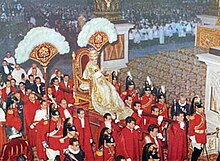
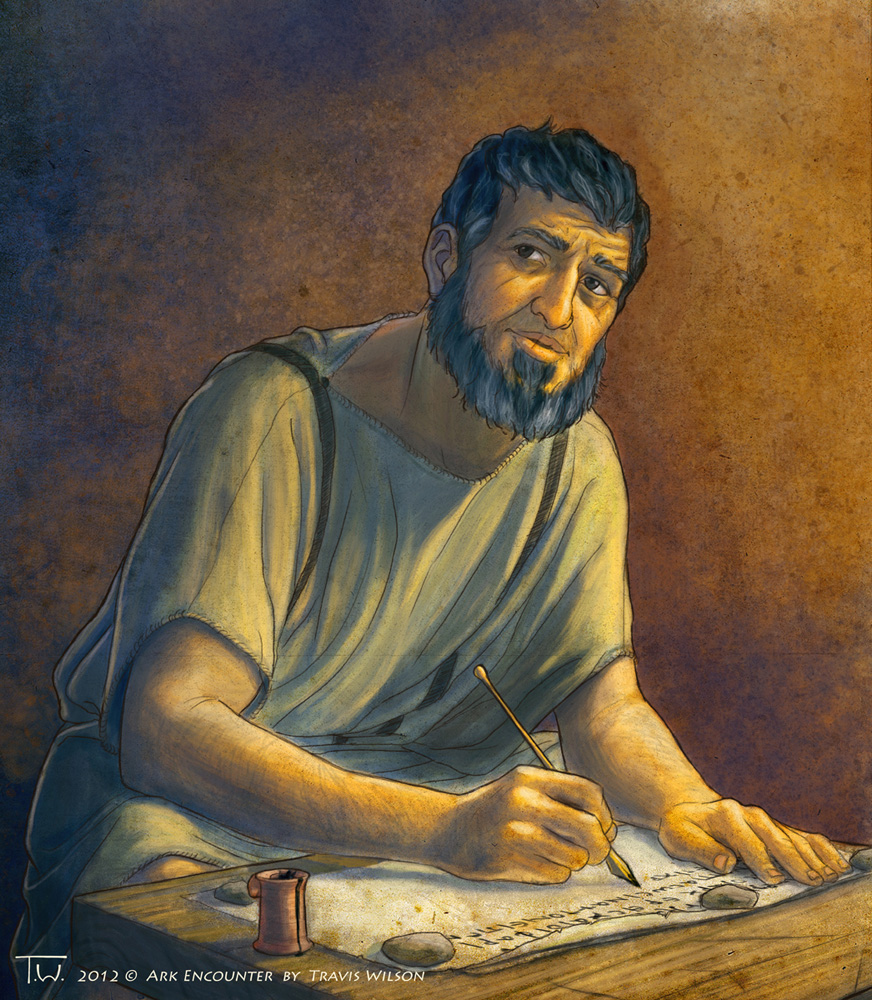
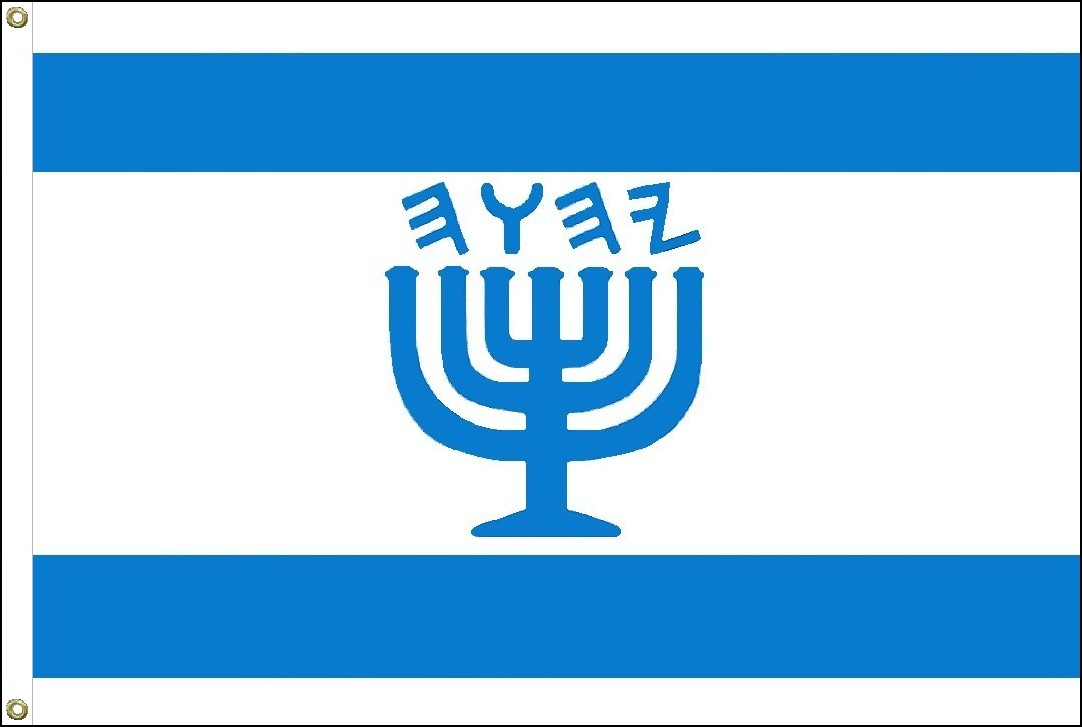

-1-.jpg)

